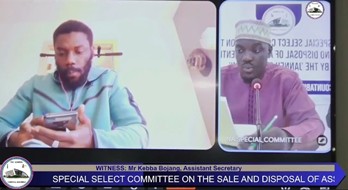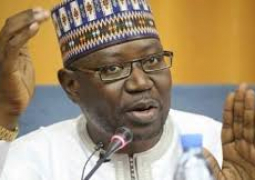
Pressed by counsel, Bojang conceded that all orders he acted on came verbally from then Deputy Permanent Secretary, Ramatoulie Sarr. “They were always verbal instructions,” he said, confirming that there were no memos or signed directives guiding the sale of dozens of tractors.
Equally explosive was the admission that unlike the first phase of sales conducted by Alhagie Mamadi Kurang, where each tractor was itemised with buyer details, reserve prices, and final amounts, “Bojang’s second phase produced only summary reports.”
Those documents, described by lawmakers as more words than numbers, failed to show the actual proceeds from each sale.
The lack of records was further compounded by a glaring financial discrepancy. Kurang’s auction of 43 tractors and one plough brought in over D10 million. Under Bojang’s team, a similar number of items generated just D7.2 million, a shortfall of nearly D3 million.
Bojang attempted to explain the difference, insisting that the tractors under his watch were scraps compared to those sold earlier. “Most of the tractors were not in very good shape,” he told the committee.
“This is public property. Gambians deserve to know how their assets were sold and for how much,” counsel stated.
Counsel also sought to clarify whether members of the commission staff themselves bought tractors or vehicles during the auctions. Bojang categorically denied making any purchases but gave a less-than-assuring response about his colleagues. His statement triggered murmurs of suspicion across the chamber.
Counsel for the committee quickly moved to demand accountability, ruling that Bojang and Sarr must furnish the Assembly with the missing itemised sales report before the investigation could proceed. “We cannot question you blindly without the figures,” the counsel declared.





